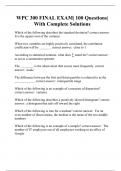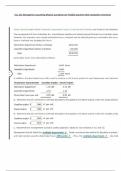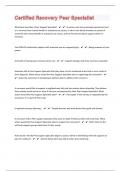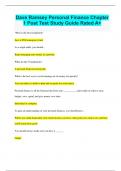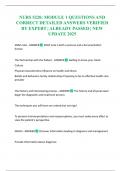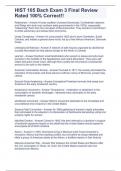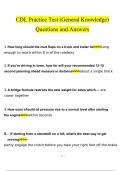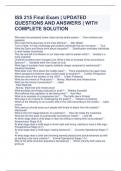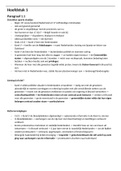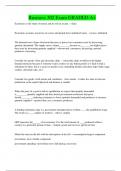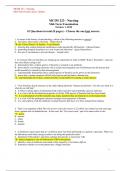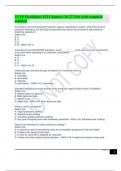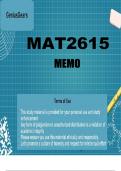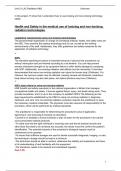Health and Human Rights:
EQ1: What is human development and why do levels vary from place
to place?
8.1 Concepts of human development are complex and contested:
Development – the ways in which a country seeks to progress
economically and to improve the quality of life for its inhabitants.
Development is measure through development indicators.
GDP:
The monetary value of all goods and services produced by a country in a
year measure in US$. The IMF estimated global economic growth in 2015
was 3.3% predicting this would increase to 3.8% in 2016. A higher GDP
could represent a high earning population and productive workforce
however it can be skewed by very rich minorities.
Human Development Index:
Devised by the UN to simplify showing progress using wealth (GNI), health
(Life Expectancy) and education.
Happy Planet index:
A measure of sustainable wellbeing shows the extent of positive and
happy lives people lead. It uses life expectancy, inequality, experienced
wellbeing and ecological footprint. Does not feature and economic
component like most measure do. Costa Rica is ranked the highest – they
abolished their army and spent its Défense budget on education and
pensions. They tax fossil fuel use and spend this tax on protecting
rainforests.
Human Capital – a concept used by human resource professionals to
designate personal attributes considered useful in the production process.
Hans Rosling is a lead statistician who believes health and life expectancy
directly correlates with a country’s development. He also tries to disgrace
national governments about the inequalities in health and wellbeing
across the world.
Models of Governance:
Democracy – a system of government based on the belief that the
population has equal rights in deciding how the country is run. Each
member of society can vote to elect representatives in government to
govern on their behalf.
Capitalism – industry is owned by private businesses and are run to make
profit as opposed to being run by the state. Within this system, individuals
,earn wages based on their skill and hours worked. Often leads to wealth
inequalities.
Some governments choose not to adopt western governance and values
as they go against their traditions, culture and way of life. Western
lifestyles are viewed as unsustainable and atheist which can cause their
laws to contradict religious laws.
Sharia Law – model of non-secular governance:
Sharia law is the law of Islam.
A legal system that intertwines law and religion unlike western
governments where secularisation has occurred.
Examples laws include - theft, punishable by amputation, a woman
can have one husband and a man can have up to 4 wives.
Some of the worlds strictest countries follow sharia law – Qatar and
the UAE.
They have some of the most controversial views on women’s rights
and treatment.
The UK and some ‘Christian countries’ are concerned that Sharia law
poses a danger as a parallel legal system.
Bolivia – Model of Sustainability:
Led by Evo Morales – a native Aymara Indian, who won an
unprecedented third term of office in Bolivia’s 2014 elections.
He was the countries first indigenous presidents.
Widely known for his anti-colonialist and anti-imperialist rhetoric.
Lead the creation of the 2009 constitution focused on Law of Mother
Earth: Mother nature has rights, including to remain unaltered by
genetic modification. The government has a duty in protecting
mother nature through reducing resource consumption to remove all
WMD’s (weapons of mass destruction).
The law of Mother Nature is an approach to put nature first in
response to climate change. This model required adaptation of
Bolivia’s economic structure and rethinking development.
Education:
A better level of education leads to more people entering higher level
jobs: this increases a nation’s wealth. Culture and corruption can influence
a countries belief about education.
The UK’s Education:
The programme for international student assessment (PISA)
provides education rankings based on international tests.
Asian cities and countries have remained at the top whilst the UK
remains in the middle.
, UNESCO:
United nations education, scientific and cultural organisation.
Done work throughout the world to ‘ensure that every child, boy or
girl, has access to quality education as a fundamental human right’.
Found that education remains inaccessible to over 60 million
children of primary school age.
32 million of these children are in sub–Saharan Africa.
8.2 There are notable variations in human health and life expectancy:
Deprivation – when an individual’s wellbeing and quality of life fall below a
level regarded as a reasonable minimum.
Health in the developed world:
Most HICs have excellent access to clean water rarely experiencing
severe drought.
Most population have disposable income which can be spent on
improving their lifestyle and wellbeing further extending life
expectancies.
Japan has some of the longest living people who argue that their
lifestyle and diet is the cause.
Developed nations have good healthcare access and life insurance
to afford medical treatment.
Lifestyle choices such as smoking can strain healthcare systems.
Large cities such as London are susceptible to infectious disease.
Purchasing power parity – relates average earnings in a country to local
prices and what they will buy. Spending power in a country reflects the
cost of living.
Determinants – a range of factors that affect health and life expectancy.
2019 study showed a downwards trend in life expectancy in the developed
world linked largely to lifestyle determinants.
OECD – organisation for economic cooperation and development. A group
of 35 nations from the developed world which aims to promote the
economic and social wellbeing of people around the world. Research they
conducted found that between 1985 and 2010:
Average life expectancy has increased by roughly 5.1 years.
Women are expected to live for up to 5 years longer than men.
Cardiovascular diseases remain the leading cause of death.
Health of indigenous communities in Australia:
Indigenous people make up 3% of Australia population. 2012/2013 survey
found the health of these people was largely impaired by social factors:
EQ1: What is human development and why do levels vary from place
to place?
8.1 Concepts of human development are complex and contested:
Development – the ways in which a country seeks to progress
economically and to improve the quality of life for its inhabitants.
Development is measure through development indicators.
GDP:
The monetary value of all goods and services produced by a country in a
year measure in US$. The IMF estimated global economic growth in 2015
was 3.3% predicting this would increase to 3.8% in 2016. A higher GDP
could represent a high earning population and productive workforce
however it can be skewed by very rich minorities.
Human Development Index:
Devised by the UN to simplify showing progress using wealth (GNI), health
(Life Expectancy) and education.
Happy Planet index:
A measure of sustainable wellbeing shows the extent of positive and
happy lives people lead. It uses life expectancy, inequality, experienced
wellbeing and ecological footprint. Does not feature and economic
component like most measure do. Costa Rica is ranked the highest – they
abolished their army and spent its Défense budget on education and
pensions. They tax fossil fuel use and spend this tax on protecting
rainforests.
Human Capital – a concept used by human resource professionals to
designate personal attributes considered useful in the production process.
Hans Rosling is a lead statistician who believes health and life expectancy
directly correlates with a country’s development. He also tries to disgrace
national governments about the inequalities in health and wellbeing
across the world.
Models of Governance:
Democracy – a system of government based on the belief that the
population has equal rights in deciding how the country is run. Each
member of society can vote to elect representatives in government to
govern on their behalf.
Capitalism – industry is owned by private businesses and are run to make
profit as opposed to being run by the state. Within this system, individuals
,earn wages based on their skill and hours worked. Often leads to wealth
inequalities.
Some governments choose not to adopt western governance and values
as they go against their traditions, culture and way of life. Western
lifestyles are viewed as unsustainable and atheist which can cause their
laws to contradict religious laws.
Sharia Law – model of non-secular governance:
Sharia law is the law of Islam.
A legal system that intertwines law and religion unlike western
governments where secularisation has occurred.
Examples laws include - theft, punishable by amputation, a woman
can have one husband and a man can have up to 4 wives.
Some of the worlds strictest countries follow sharia law – Qatar and
the UAE.
They have some of the most controversial views on women’s rights
and treatment.
The UK and some ‘Christian countries’ are concerned that Sharia law
poses a danger as a parallel legal system.
Bolivia – Model of Sustainability:
Led by Evo Morales – a native Aymara Indian, who won an
unprecedented third term of office in Bolivia’s 2014 elections.
He was the countries first indigenous presidents.
Widely known for his anti-colonialist and anti-imperialist rhetoric.
Lead the creation of the 2009 constitution focused on Law of Mother
Earth: Mother nature has rights, including to remain unaltered by
genetic modification. The government has a duty in protecting
mother nature through reducing resource consumption to remove all
WMD’s (weapons of mass destruction).
The law of Mother Nature is an approach to put nature first in
response to climate change. This model required adaptation of
Bolivia’s economic structure and rethinking development.
Education:
A better level of education leads to more people entering higher level
jobs: this increases a nation’s wealth. Culture and corruption can influence
a countries belief about education.
The UK’s Education:
The programme for international student assessment (PISA)
provides education rankings based on international tests.
Asian cities and countries have remained at the top whilst the UK
remains in the middle.
, UNESCO:
United nations education, scientific and cultural organisation.
Done work throughout the world to ‘ensure that every child, boy or
girl, has access to quality education as a fundamental human right’.
Found that education remains inaccessible to over 60 million
children of primary school age.
32 million of these children are in sub–Saharan Africa.
8.2 There are notable variations in human health and life expectancy:
Deprivation – when an individual’s wellbeing and quality of life fall below a
level regarded as a reasonable minimum.
Health in the developed world:
Most HICs have excellent access to clean water rarely experiencing
severe drought.
Most population have disposable income which can be spent on
improving their lifestyle and wellbeing further extending life
expectancies.
Japan has some of the longest living people who argue that their
lifestyle and diet is the cause.
Developed nations have good healthcare access and life insurance
to afford medical treatment.
Lifestyle choices such as smoking can strain healthcare systems.
Large cities such as London are susceptible to infectious disease.
Purchasing power parity – relates average earnings in a country to local
prices and what they will buy. Spending power in a country reflects the
cost of living.
Determinants – a range of factors that affect health and life expectancy.
2019 study showed a downwards trend in life expectancy in the developed
world linked largely to lifestyle determinants.
OECD – organisation for economic cooperation and development. A group
of 35 nations from the developed world which aims to promote the
economic and social wellbeing of people around the world. Research they
conducted found that between 1985 and 2010:
Average life expectancy has increased by roughly 5.1 years.
Women are expected to live for up to 5 years longer than men.
Cardiovascular diseases remain the leading cause of death.
Health of indigenous communities in Australia:
Indigenous people make up 3% of Australia population. 2012/2013 survey
found the health of these people was largely impaired by social factors:

